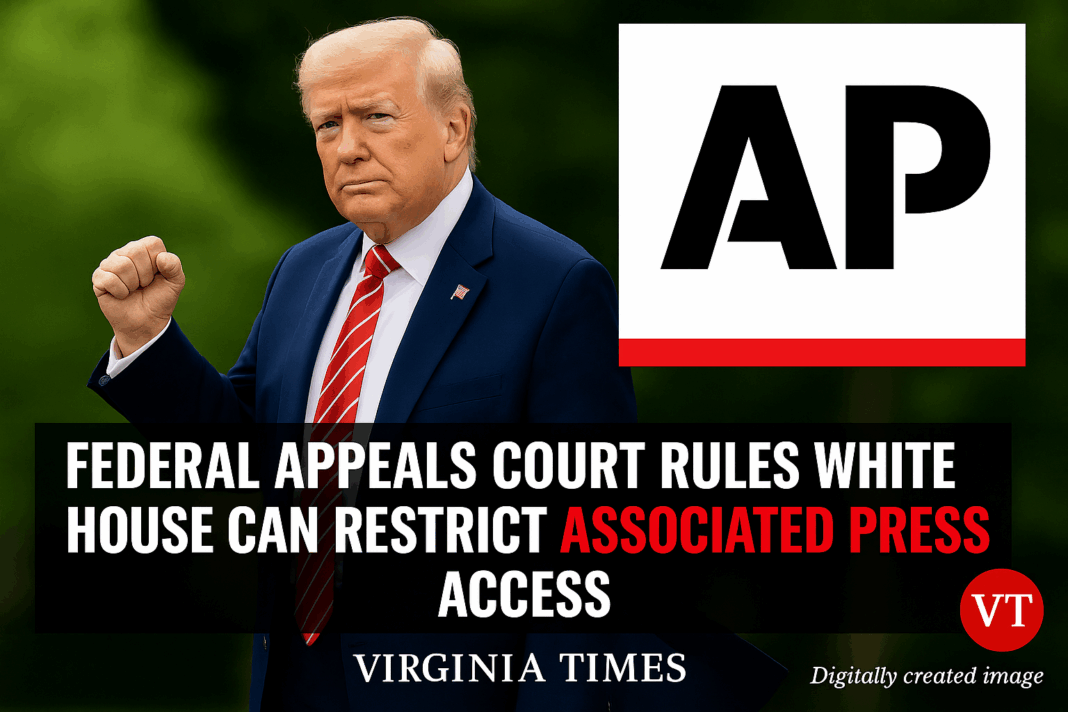– A federal appeals court upheld the White House’s authority to exclude the AP from restricted areas like the Oval Office and Air Force One.
– President Trump hailed the ruling as a victory over “Fake News.”
– Critics say the decision undermines press freedom and transparency.
– The AP is reviewing legal options for further appeal.
WASHINGTON (Virginia Times) — A federal appeals court has ruled that the White House is legally permitted to restrict access for specific media organizations, including the Associated Press (AP), from key presidential locations such as the Oval Office, Air Force One, and Mar-a-Lago. The decision represents a pivotal moment in the ongoing debate over press freedoms and executive branch transparency.
Court’s Rationale
The appellate court’s decision reverses an earlier ruling by a lower court that temporarily blocked the White House from enforcing the ban. According to the Associated Press, the court found that these specific presidential venues are not public forums and therefore fall within the executive branch’s discretionary authority to regulate access. The ruling does not prohibit general press coverage but allows the administration to decide who may be present during select engagements.
Reactions from President Trump and White House
President Donald Trump celebrated the ruling in a Truth Social post, writing:
White House Press Secretary Karoline Leavitt also issued a statement via X, reiterating the administration’s stance on press access:
Political and Media Reaction
The decision has drawn strong reactions from across the political spectrum. Supporters argue that the ruling empowers the executive branch to prioritize access for nontraditional and independent media, while critics contend it may chill press freedom.
According to Deadline, several Republican lawmakers applauded the move. Senator Josh Hawley said, “Legacy media has had a monopoly on White House coverage for too long. This decision allows for a broader range of voices to be heard.”
Democrats, however, were quick to condemn the outcome. Senator Elizabeth Warren called it “a blatant attack on the free press,” adding, “The White House should not be allowed to pick and choose which journalists get access based on political favoritism.”
Associated Press Response
The AP expressed its disappointment with the ruling. Patrick Maks, a spokesperson for the organization, said the legal team is currently evaluating all available options, including the possibility of seeking a full appellate review. In a follow-up report from AP News, the organization reaffirmed its commitment to protecting access to the presidency for all journalists, regardless of political preference or platform.
Looking Ahead
This ruling has intensified the national conversation around the role of media in democratic governance and the executive branch’s authority over access. While supporters argue that legacy outlets must compete with emerging platforms for transparency and relevance, critics warn that barring institutional press may erode public accountability.
The case could serve as a precedent in future legal challenges regarding press credentials and media representation inside federal institutions, especially during a politically polarized era.
A global media for the latest news, entertainment, music fashion, and more.














